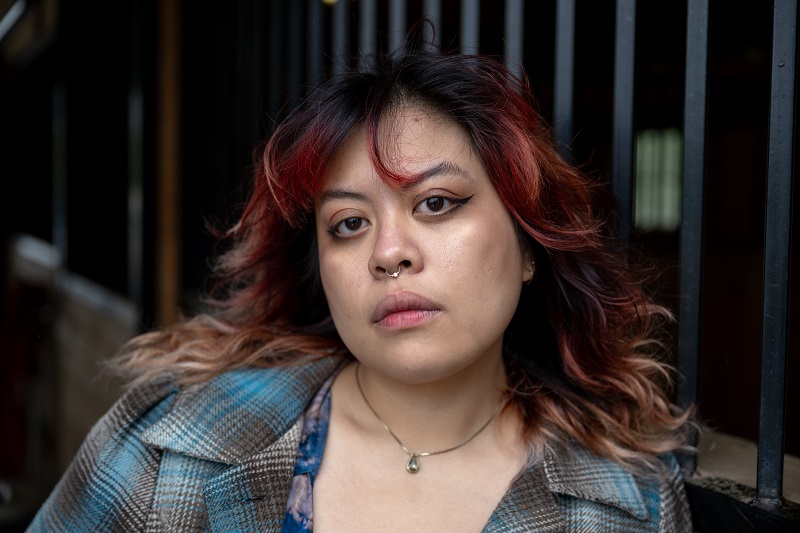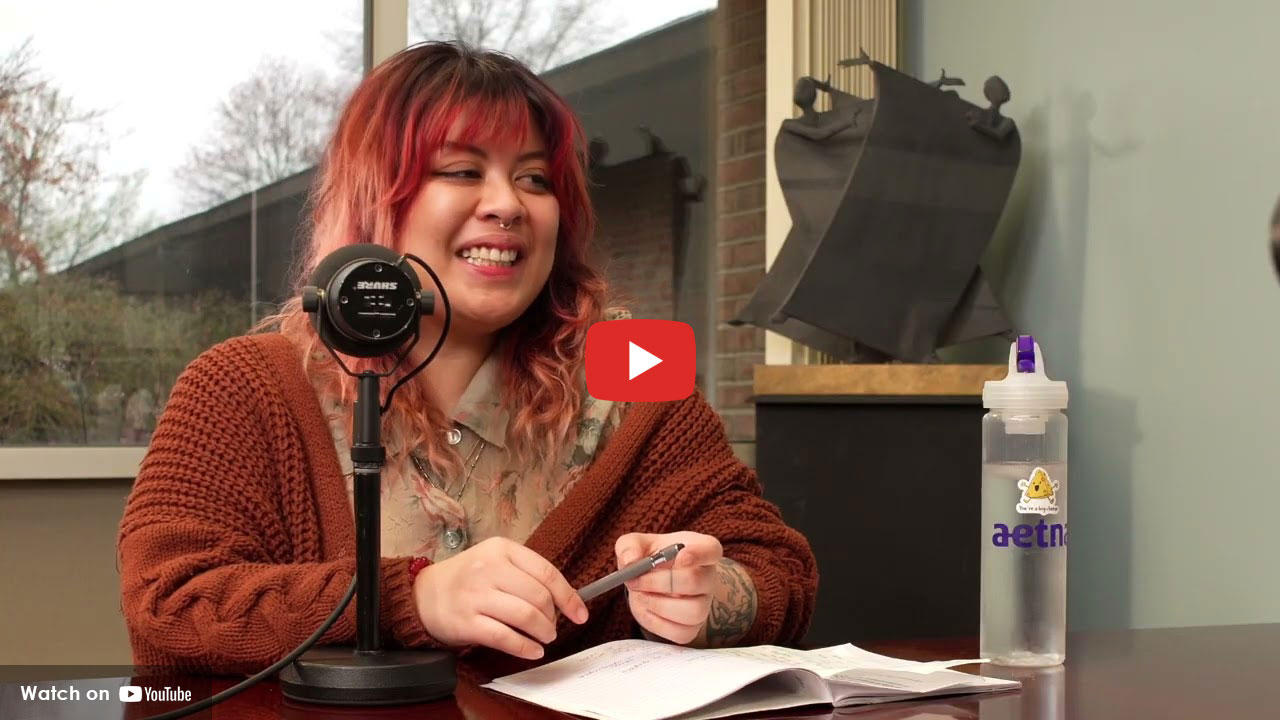North Brunswick Teenager Journeys From Self-Harm to Healing

May 17, 2024
In December 2013, Jasmine S. of North Brunswick, New Jersey, was 14 and exhausted from the thoughts endlessly running through her head. Thoughts that she later came to understand were symptoms of a medical condition.

She had been struggling with depression, anxiety, self-hatred, body dysmorphia and the pressure to be accepted and be like other kids. Thoughts of hopelessness, worthlessness and self-doubt consumed her to a point where any distraction from her emotional pain would feel like relief. For Jasmine and many others, relief from emotional pain can come in the form of physical pain inflicted on themselves by “cutting” or using blades or sharp instruments to cause self-harm.
For Jasmine, initially these acts themselves were not suicide attempts, but an effort for momentary distraction from emotional pain.
“They didn’t teach things like managing emotional pain or coping skills in school, so I had no way of knowing how to deal with [these emotions] in a healthy way,” says Jasmine, now 24. “I was left on my own to figure it out, and I didn’t know what to do. The internet became a contributing factor to find and connect with people in similar despair, and find advice on hiding and safely harming myself. It seems like a bizarre thought to me today, but I was researching how to safely harm myself”.
However, she did recognize that self-harming was not helping her. She knew she needed help but didn’t know how to get it. She approached her parents first, and they were empathetic and loving, but there is no textbook for parents on how to best support a child struggling with mental illness, and they thought she was just going through a teenage phase.
She eventually talked to a guidance counselor at her school, and in late 2013, she was admitted to a behavioral health care facility. Finally, she thought, everything was going to get fixed. But that’s not how things turned out.
“The situation I was in was foreign to me, and I anticipated things to change quickly,” she says. “What I found is that I was in such a crisis that they really needed to monitor me and make sure that I wasn’t harming myself or that I was going to attempt (suicide). It was clear they wanted to get me stable, and there would be more steps on the path to feeling better and accepting myself.”
Caring Counselors and Successful Therapy
Jasmine’s first encounter with the mental health field didn’t provide all the answers and tools she would need for the long-term management of her condition, and she attempted suicide after that short stay. Six months after her first hospitalization, she was admitted into long-term residential care at Carrier Clinic.
“Taking that first step to reach out for help is so vital and important to get a diagnosis and treatment plan in place, but is not always a quick and direct path to emotional and mental wellness that people think it may be,” says Eric Alcera, M.D., vice president and chief medical officer at Carrier. “The path is to first manage the crisis, then build trust and a rapport with a care team. Sometimes, it might take a couple of tries. You have to find the right fit in terms of the therapist, counselors and people reaching out to you. It is important to understand that it is a journey to mental health and wellness and every step is progress, and there will be stumbles along the way.”
During her nine months at Carrier Clinic, Jasmine worked with the clinical team and participated in various types of therapy, such as equine, art and music therapy, traditional “talk” therapy and dialectical behavior therapy (DBT). She developed bonds with the counselors.
“The counselors helped me because they talked a lot from experience,” she says. “The way they related to me and spoke to me made it all click in my head. They gave an understanding of my condition and helped me develop the skills and tools to manage things when days were tough.”
After leaving Carrier and before returning to school, Jasmine spent a couple of months in Carrier’s East Mountain School, which offers educational programs and therapeutic services to youth in middle school and high school.
Dedicated to the Mental Health Journey
After discharge, Jasmine found a therapist to work with regularly. Luckily, she says, she found someone who really understood her and who had been through similar experiences—someone who had “gone through it, had healed and recovered.”
Jasmine says it took ongoing therapy to really understand that the thoughts in her head would not determine her self-worth, and whatever was consuming her thoughts today would be forgotten in a few days or weeks. Her therapists helped her turn her life around by giving her knowledge, self-understanding and acceptance that turned everything around.
Today, she is no longer in therapy, has graduated from college, travels and splits her working life between teaching, counseling and working in her family’s videography business. She is also considering how she can continue to help others as her therapists helped her.
“It took a while, but the path to self-understanding and a better life is possible. 13 year old Jasmine didn’t understand this and thought she was a terrible person,” she says. “It’s always going to be a process: finding the right doctors and treatments that work for you. But putting in the effort to go through these processes and find what works is so worth it. No one wants to hurt and struggle every day. You have to find hope and know that there are people who love you and want to help, even on days when you feel alone and a burden to them. Push those thoughts aside, life is worth living, and help is out there.”
If you or someone you love is in distress, call 988 to reach the National Suicide & Crisis Lifeline for free, confidential support, or visit your local emergency department.
Next Steps & Resources:
Meet our source: Eric Alcera, M.D
To make an appointment with a behavioral health provider near you, call 800-822-8905 or visit our website.
Learn more about behavioral health and psychiatry at Hackensack Meridian Health.
The material provided through HealthU is intended to be used as general information only and should not replace the advice of your physician. Always consult your physician for individual care.







